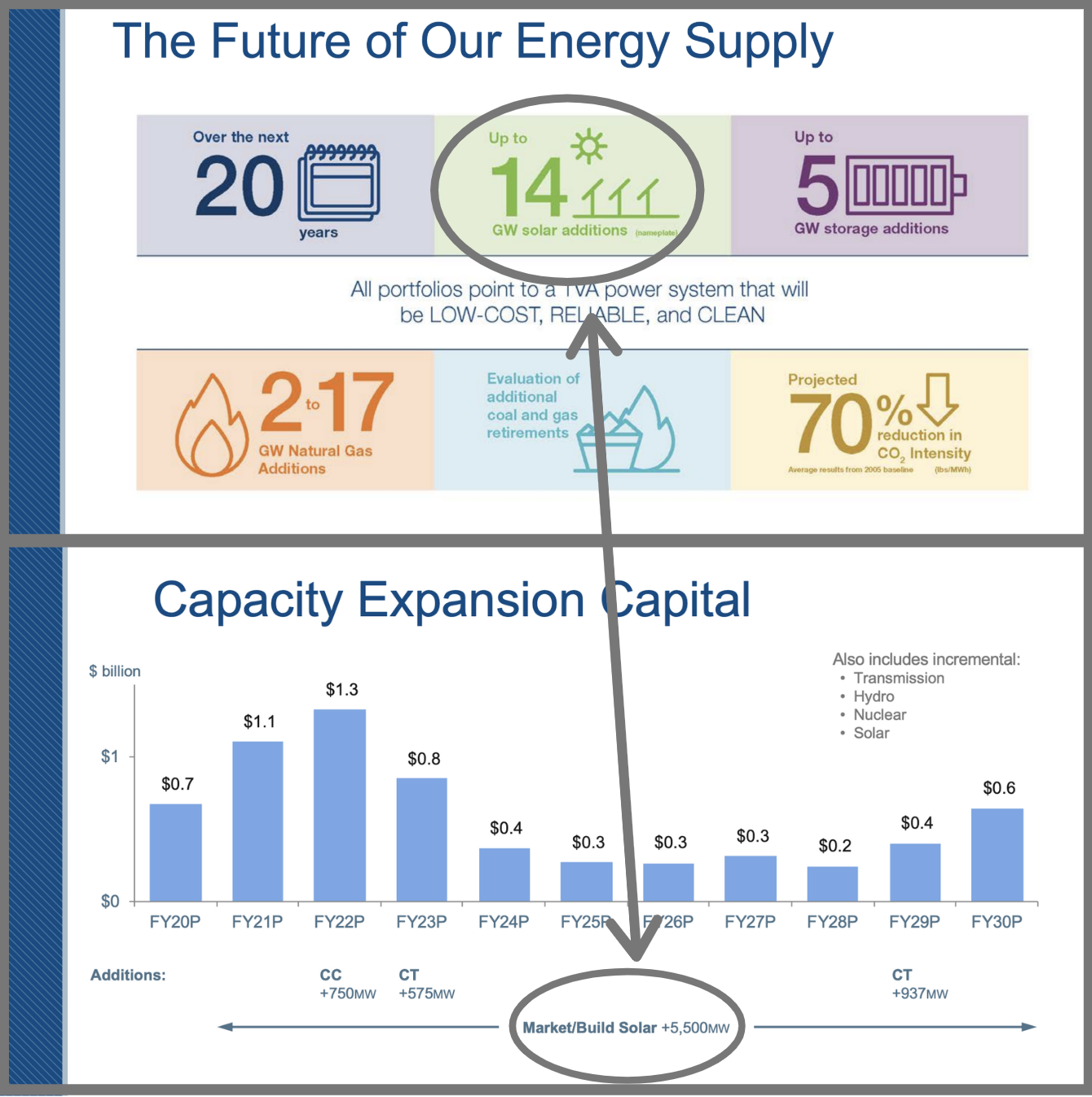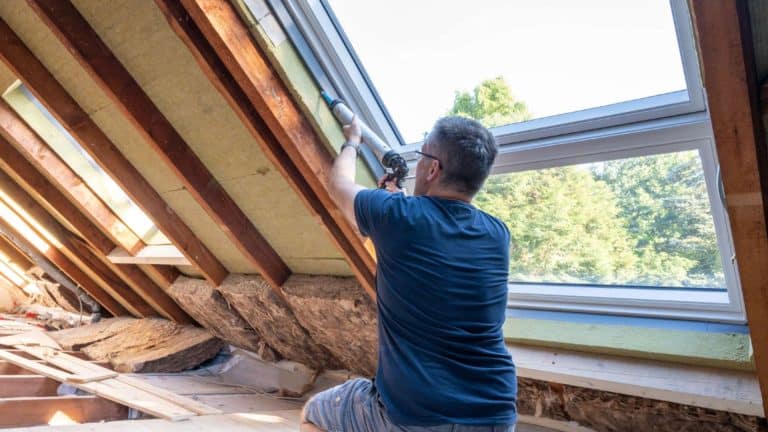
Today the Tennessee Valley Authority (TVA) Board of Directors, TVA’s regulatory body, held their quarterly meeting in Knoxville to approve two future plans that will have a sweeping impact on the lives of everyone in the Tennessee Valley. These two plans were largely developed by TVA staff behind closed doors, with the meaningful discussion from the Board occurring during committee meetings that are closed to the public. Catch-up on our live-tweet coverage of the board meeting.
Budget keeps rates flat, does not address customers high bills.
Bills = Consumption (kWh) x Rate ($/kWh) + Fixed fee ($)

The budget pulls back a long parade of base rate increases, but TVA has not made a long term commitment to lower customers bills. In fact the opposite is true: Tennessee households pay the 12th highest energy bills in the nation. The discussion at the TVA Board meeting today remains tone deaf to the struggles of TVA’s customers by continuing to focus on low rates with no mention of bills.
TVA’s abandonment of energy efficiency in conjunction with increasing fixed fees across the TVA territory are driving bills up for households and small businesses. For example, Knoxville residents have been victims of this trend as the Knoxville Utilities Board (KUB) has tripled its basic mandatory service charge, or fixed fee, since 2010. KUB only recently relented to freeze planned increases on fixed fees for the next 3 years after receiving pressure from customers.
Low-income and fixed-income households struggle to pay their bills and face high energy burdens. TVA is leaving energy savings on the table instead of investing in low-cost resources like energy efficiency, leading us into the second major plan the TVA Board approved today.
TVA’s IRP guts energy efficiency, provides little guidance on other resources.
Energy efficiency is the cheapest, quickest, and cleanest way to address energy burdens that disproportionately impact low-income, fixed-income and minority communities. TVA is well below the regional average on energy efficiency investments and energy savings, yet their latest Integrated Resource Plan (IRP) or long-term resource plan calls for even lower investments in energy efficiency going forward.
TVA’s move away from energy efficiency is even more glaring in the face of the response from CFO John Thomas to a question from a Board member about the potential financial impacts to TVA if Memphis Light, Gas, and Water (MLGW) leaves TVA. MLGW is TVA’s largest customer, representing approximately 10% of TVA’s revenue according to Thomas. MLGW is currently evaluating the economics of leaving TVA. Thomas went on to claim that TVA could lose up to 10-15% of its load without significant financial consequences. This completely contradicts their pull back on energy efficiency. If there are no financial consequences to load reduction up to 15%, TVA should be able to push out significant energy efficiency programs across the Valley. We would love to see a goal to save 10-15% of load over the next 10 years.
If TVA can lose up to 10-15% of its load without experiencing significant financial consequence, why are energy efficiency and rooftop solar treated as such a threat to TVA’s financial well being?

Energy efficiency is also key in tackling the challenge of a changing climate by reducing greenhouse gas emissions.
The meeting presentation touted the fact that TVA has reduced CO2 emissions 51% since 2005, yet a few slides later appeared to celebrate a target to reduce CO2 emission intensity (tons of CO2 emitted per MWh of power generated) by 70% from 2005 levels by 2038. That represents a serious slow-down in the rate of emission reductions.
The slides and CEO Lyash’s presentation also mention a potential to build “up to 14 GW” of solar in the next 20 years. However, the budget the Board approved only includes 5.5 GW of solar through 2030. While these two figures are not apples to apples, if I was a betting person I would bet on the budget figures over those presented in the IRP any day.

Lots of transparency talk, little transparency walk.
The public is now barred from talking to Board members during their meeting, and instead is relegated to speaking to the Board the day before at a “public” listening session. These sessions are held during the work day, not live-streamed, and lead to no meaningful outcomes because decisions are made in advance at the committee level hidden from the public eye. We are still boycotting these sessions, and instead submitted a formal letter to the TVA Board on the IRP.
Additionally, we support the bipartisan bill in the House (HR 881) calling for more transparency in how TVA makes their decisions and requiring open committee meetings, introduced by Representative Burchett (R-TN-2) and co-sponsored by Representatives Cohen (D-TN-9) and DesJarlais (R-TN-4). Forcing impacted parties to take additional time from work during the day to attend a separate meeting in order to address the TVA Board stifles meaningful public participation. TVA’s burdensome listening sessions are not a form of meaningful public interaction, yet at the meeting Lyash touted TVA as “one of the most transparent utilities.”
Join us as we continue to push for clean energy options, affordable rate structures, and participatory utility oversight.



